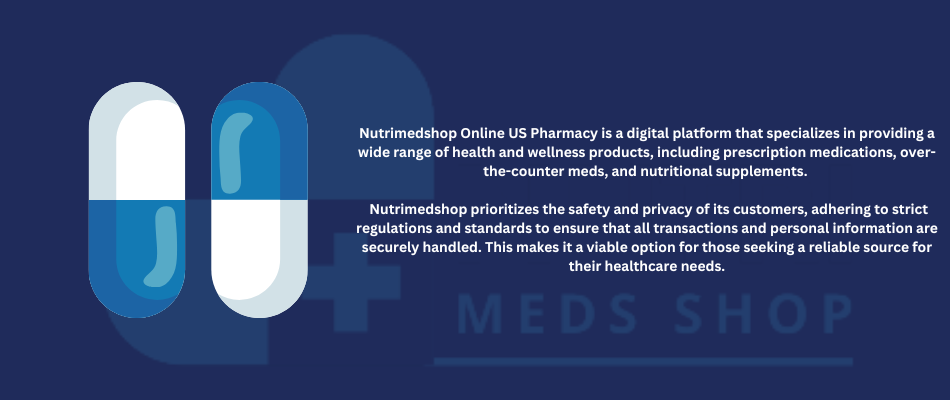- enquiry@nutrimedshop.com
- +1 848-480-6007
- Adderall
- Adipex
- Alprazolam
- Ambien
- Ativan
- Carisoprodol
- Clonazepam
- Codeine
- Darvocet
- Demerol
- Diazepam
- Dilaudid
- Fioricet
- Hydrocodone
- Hydromorphone
- Lorazepam
- Lorcet
- Lortab
- Meridia
- Methadone
- Norco
- Opana ER
- Oxycodone
- Oxycontin
- Percocet
- Phentermine
- Roxicodone
- Soma
- Suboxone
- Subutex
- Tramadol
- Valium
- Viagra
- Vicodin
- Xanax
- Klonopin
- Cialis
Codeine Category
Codeine 15mg
$343 - $1019
Codeine 300/30mg
$399 - $988
Codeine 30mg
$399 - $988
Codeine 60mg
$450 - $1350
Category Description
Buy Codeine Online offers a convenient solution for those seeking relief from severe pain. Shop Now !
What is Codeine?
Codeine works by binding to opioid receptors in the brain and spinal cord, blocking pain signals. This provides pain relief while also depressing the cough reflex. It is less potent than other opioid medications like morphine, but still carries risks of side effects, dependence, and addiction.
How Codeine Works
Codeine is an opioid drug that works by binding to opioid receptors in the brain and spinal cord. This blocks pain signals from being transmitted to the brain, reducing the perception of pain.
In addition to reducing pain, codeine’s binding to mu-opioid receptors also suppresses the cough reflex. The cough reflex is controlled by an area of the brainstem called the medullary cough center. When codeine activates mu-opioid receptors in this part of the brain, it prevents nerve signals from triggering involuntary coughs. This makes codeine an effective antitussive or cough suppressing medication.
Medical Uses of Codeine
Codeine is commonly prescribed for the treatment of mild to moderate pain and for suppressing coughs. It is one of the most widely used opioid pain medications in the world. Some of the main medical uses of codeine include:
Treatment of Mild-Moderate Pain
Codeine is often used for managing acute pain after surgery or injuries, as well as chronic pain from conditions like arthritis. It binds to opioid receptors in the brain and spinal cord, altering pain perception and reducing pain signaling. Codeine is about one-tenth as potent as morphine for treating pain. It provides effective analgesia for mild to moderate pain, but generally not severe pain.
Cough Suppression
Codeine is considered a gold standard treatment for reducing coughing. It acts centrally to suppress the cough reflex. Codeine is commonly prescribed in syrup form for coughs from colds, flu, and conditions like bronchitis. It reduces the frequency and intensity of coughing.
Common Prescription Codeine Medications
Some common prescription codeine medications include Tylenol with Codeine (acetaminophen and codeine), Fioricet with Codeine (butalbital, acetaminophen and codeine), and Cheratussin (codeine and guaifenesin). These are used for treating pain, headaches, coughs, and other symptoms. Codeine is also an ingredient in some prescription-strength cough syrups.
Side Effects of Codeine
Codeine, like other opioids, can cause several side effects even when taken as prescribed. Some of the most common side effects include:
- Constipation
- Nausea
- Drowsiness
- Respiratory Depression
- Tolerance and Dependence
Contraindications
- Codeine should not be used in children under 12 years old or in adolescents who are obese or have conditions like sleep apnea or severe lung disease. It can cause life-threatening breathing problems in these groups.
- Patients who have a history of drug hypersensitivity should not use codeine. An allergic reaction can be fatal.
- Codeine should be avoided in patients with respiratory depression, bronchial asthma, or other obstructive airway diseases as it can worsen breathing difficulties.
- Patients with acute abdominal conditions should not take codeine, as it may obscure the diagnosis or clinical course of the pathology.
Dosing considerations:
- Codeine dosage should be individualized based on factors like age, weight, medical conditions, response to treatment, and type of pain being treated.
- The dose can be titrated up as needed for pain relief, but the maximum daily limit is 360mg per day. Higher doses increase side effects without added benefit.
- Codeine’s pain relieving effects are due to conversion to morphine. On average, 200mg of codeine provides equivalent effects as 13mg of morphine. But there is variability between patients in conversion rates.
- Elderly patients and those with kidney impairment may need dose reductions due to slower clearance. The dosing interval may need to be extended.
- For chronic use, the lowest effective dose should be used to avoid building tolerance.
- Risk of Dependence and Addiction
Codeine works by binding to opioid receptors in the brain that regulate pain and pleasure. With repeated use over time, the brain adapts to the presence of codeine by reducing the number of receptors. This leads to tolerance, meaning a person needs more codeine to get the same effect. It also causes physical and psychological dependence, where a person feels unable to function normally without the drug.
Even those taking codeine as prescribed can become addicted. The estimated addiction rate with prescribed use is around 15%. Risk increases with higher doses taken for longer periods. Illegal recreational use of codeine also leads to addiction in many users.
Withdrawal Symptoms
When dependent users stop taking codeine, they will experience withdrawal symptoms which can begin within 24 hours after the last dose. Early symptoms include anxiety, restlessness, sweating, and muscle aches. After 1-3 days, more severe symptoms emerge like nausea, vomiting, diarrhea, dilated pupils, goosebumps, and bone/joint pain. Psychological symptoms like depression, drug cravings, and insomnia may last for weeks or months after quitting. Withdrawal symptoms compel many users to return to codeine to relieve discomfort.
Treatment Options
Overcoming codeine addiction requires professional treatment. Options include:
- Medically supervised detox to safely manage withdrawal symptoms
- Inpatient or outpatient addiction rehabilitation programs
- Behavioral therapies like cognitive behavioral therapy (CBT)
- Support groups like Narcotics Anonymous
- Medications like buprenorphine, naltrexone, or methadone to reduce cravings and withdrawal severity
The most effective treatment combines both counseling and medications over an extended period. With proper treatment and support, even long-term addiction can be overcome. But like other chronic diseases, codeine addiction requires lifelong management to prevent relapse.


